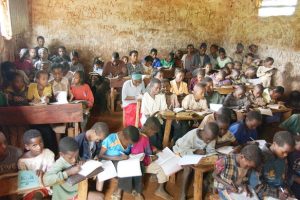
Ester, local name Fasika, is among the yearly colorful festivals of Christians. This festival marked in April has been strengthening social interactions in Ethiopia. In this regard, helping the needy, supporting elders, sharing ideas, praying for country and citizens , among others, are the main activities of the people more than ever.
Fasika refers to the end of 55 days feasting period when the Orthodox faithful celebrate their spectacular and pristine festival every year. Christian communities across the nation eagerly await the festival. However, it does not mean that the marking of the festival is always confined to the Christian communities.
Followers of other religions have been marking the ceremony with a sense of friendship and family belongingness. In this regard, except meat different religion followers have been enjoying together delicious dishes, alcohols and beverages.
Among the 55-day long fasting period, the last week referred to “The passion of the Christ’’ (Simon Himemat) requests undivided attention and it has a unique name.
Particularly, during this week, many citizens travel to rural areas to pay a visi to their families, relatives, friends so as to join and celebrate the festivals with a sense of togetherness. In turn, localities wash the guests’ legs, which implies how the Lord humbled himself lowering from his dignity or throne for human beings.
The above picture depicts that Jesus Christ underwent suffering to educate love, forgiveness, peace, truth and the like to the world. Christ’s love showcases that the bad deeds like killing human beings, stealing properties or others, lying, among the bad activities, are intolerable.
To the end, Jesus was crucified on the cross by three nails, two of them on his left and right hands, while the remaining one on for his legs. The action taken by Judas is seen treasonous.
As per Bible’s teachings, the faithful believe that Ethiopia shall raise hands to the lord to obtain love, health, peace and the like whilst cherishing citizens and defending their country. People have a belief that God is Omnipotent. The people have a common understanding s/he who takes pride let him/her take pride in God. It shows that the sole fort of citizens must be God rather than depending on their powers. Because, there is nothing above the love of the Lord that sacrificed his life to the people. Following this, Jesus died and resurrected from the grave after three days. He promised to Adam that “I will be born from your grandson and save you.” Simply, people obtain more significance from the rebirth of God.
Furthermore, citizens would learn a lot from God when it comes to love and humanities. However, it does not mean that those with destructive bent will go scot-free always forgiven with love or compassionateness. Rather they will suffer penalty as a sense of guilt.
Likewise, the faithful put on embroidered white costumes, and hold candles thankful of the Lord. This is mostly the characteristic feature of the Ethiopian Orthodox Tewahido faithful.
During Palm Sunday , Hosana ,girls are seen tying round their forehead a cross made of palm tree leaves. Hosana reminds the laity the Lord’s ride on a donkey’s back. The event is accentuated by mellifluous hymns sang by children in adoration of Him.
BY MESERET BEHAILU
The Ethiopian Herald May 2/2021





